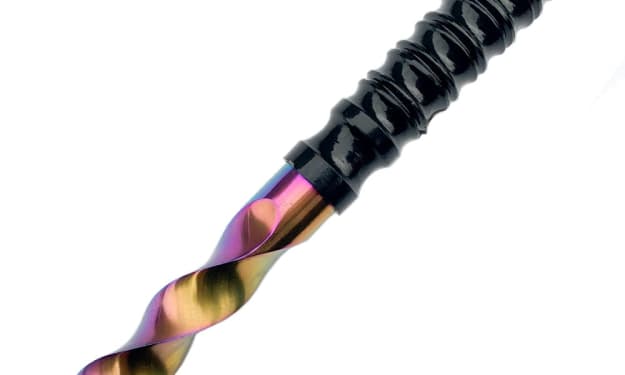
I’ve got more in common with Dr Pepper than one would expect. For context, I’m a 20-year-old first-generation queer Canadian-Pakistani woman. That may not say a lot about how or why I identify with a popular soda I’ve never even tried, but maybe this story will enlighten you.
I learned the word assimilation in the seventh grade. I vividly remember the supervising teacher of my school’s Me2We club spearheading a discussion about colonialism asking my peers and I why, as a multicultural community, do most of us wear Western clothes?
In more or less words we responded that if we were to showcase our differences there would be no space for us in our communities. To fit in, we must associate with people that look, behave and share the same values as us.
That day, my peers and I discovered that living in Western society, minorities like us tend to be the odd ones out and it is the minorities that must forgo their identities to assimilate with the majority group.
We were all stricken with anger and disbelief at how subtle oppression can be for this was our first formal introduction to assimilation, but we were victims of it far earlier than that.
The next day rolled by and we all came still wearing our usual Western attire, but the spare two students who didn’t were gleaned with a certain respect they weren’t offered before.
***
A recruiter once told me that the world won’t see your value until you know it yourself and are willing to advocate for it. Until then, you will be trampled over like a child caught in the middle of a mall on Black Friday.
Since then, I’ve been perplexed as to how do I measure my worth on my own terms when I don’t even know who I am?
For the longest time, I’ve felt trapped in a foggy world of ambiguity. As an intersectional person, I’ve never experienced the pleasure(s) of true representation or a compound of words that sat just right to describe me. I can’t even tell you all that I’m missing because I still don’t know.
A 2018 study published by the British Psychological Society introduced an inquisitive theory that an individual’s native language may influence one’s ability to visually discriminate. Researchers found that speakers of Russian and Greek who have dedicated words for light and dark blue were more likely to see a light blue triangle against a dark blue background than German speakers whose native language bears no such distinction.
English is my native language. The question that I continue to mull over is how do I find the words to describe myself in the oppressor’s tongue?
Words only cast shadows of what it intends to describe, but these shadows were specifically constructed to hide me. It’s this wretched poverty of language that prevents me from discovering and authentically sharing myself with the world.
***
Seven years would go by after that day in seventh grade feeling unseen, unheard, and un-me. Where there was an audience to appeal to, there were shavings of my identity skinned and hidden.
Unconsciously seeking validation from white people for most of my life, the first thing I did when I went to University was kiss a white boy during Orientation week. In the midst of the act, I was informed that I was the ‘first ethnic girl he’s ever kissed’.
At that moment the words of Emily Dickinson’s, I Felt a Funeral in my Brain, cracked into me.
a Plank in Reason, broke,
And I dropped down and down
And hit the world at every plunge
Unlike Dickinson, who fell to insanity, death, and disorder, the world I fell to was that of clarity, freedom, and self-expression through the use of meditation and abstract expressionism.
I reveled in abstract expressionist art for its ability to uncover inner truth and help me cast my own shadows. Ad Reinhardt’s ink drawing, What do you represent?, perfectly captures how abstraction can reveal our internal landscape and give form to conceptual material such as identity.

The work proposes an intrusive inquiry. As the viewer in the drawing attempts to decode the artwork’s meaning, the piece bites back by asking, “What do you represent?”. The purpose of the work is to say that the way you see the world has more to say about who you are than what it is that you are looking at.
Through a process of art and meditation, I uncover mirrors that allow me to peer into the nonspaces of my mind and figure out who I am.
I use my meditative practice to engage in self-research and I translate the answers that rest in silence using abstract expressionism. It is this process that liberates me from the fog of ambiguity and provides the means for me to carve out a space for myself in society, just as I am.

I suppose I should give thanks to the white boy for his 'awakening' kiss. He might think of himself as Prince Charming but at least I know that I am most certainly not Snow White and I have no intention to be.
***
Like many others, I may not find the representation I’ve always wanted, however, that does not mean an unprecedented existence does not qualify for success and recognition.
Dr Pepper is a perfect example of something that lives an unprecedented and incomparable existence and it owes its success to that very reason. Dr Pepper is uniquely Dr Pepper just as I am uniquely me.
John Green notes this in The Anthropocene: Reviewed,
Foots Clements succeeded because he understood precisely what made Dr Pepper significant. “I’ve always maintained,” he said, “you can not tell anyone what Dr Pepper tastes like because it’s so different; it’s not an apple; it’s not an orange; it’s not a strawberry; it’s not a root beer, it’s not even a cola.” … Dr Pepper has no real world analogy”.
Neither is there a real-world analogy for my existence, there is only me. So if Dr Pepper proved to be a success why can’t I?
I always thought that to fit in you have to be surrounded by people that are just like you or fool them into thinking that you’re just like them. Now I know the world doesn’t need another Cola, it just needs you. You’ve only got to know yourself first, and I promise you that you're someone worth knowing.
I can’t say that I know for sure that there is a community out in the world that I can easily slip into, shavings and all. But, I hope that as I grow more and more vocal about who I am, I’ll be able to trap a few stragglers who may see parts of themselves in me and my art.
We don’t have to be surrounded by people like ourselves, we just need to be around people who are willing to listen as we discover who we are.
About the Creator
Maha Khan
Multidisciplinary artist
mahakhanportfolio.com








Comments
There are no comments for this story
Be the first to respond and start the conversation.